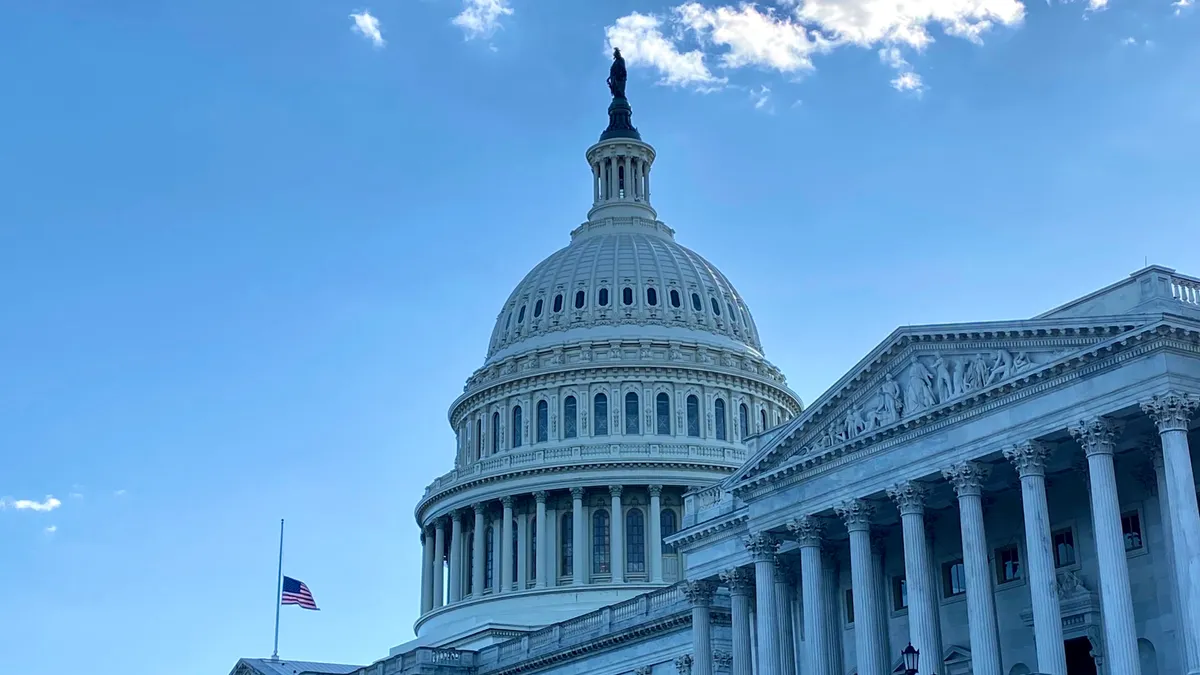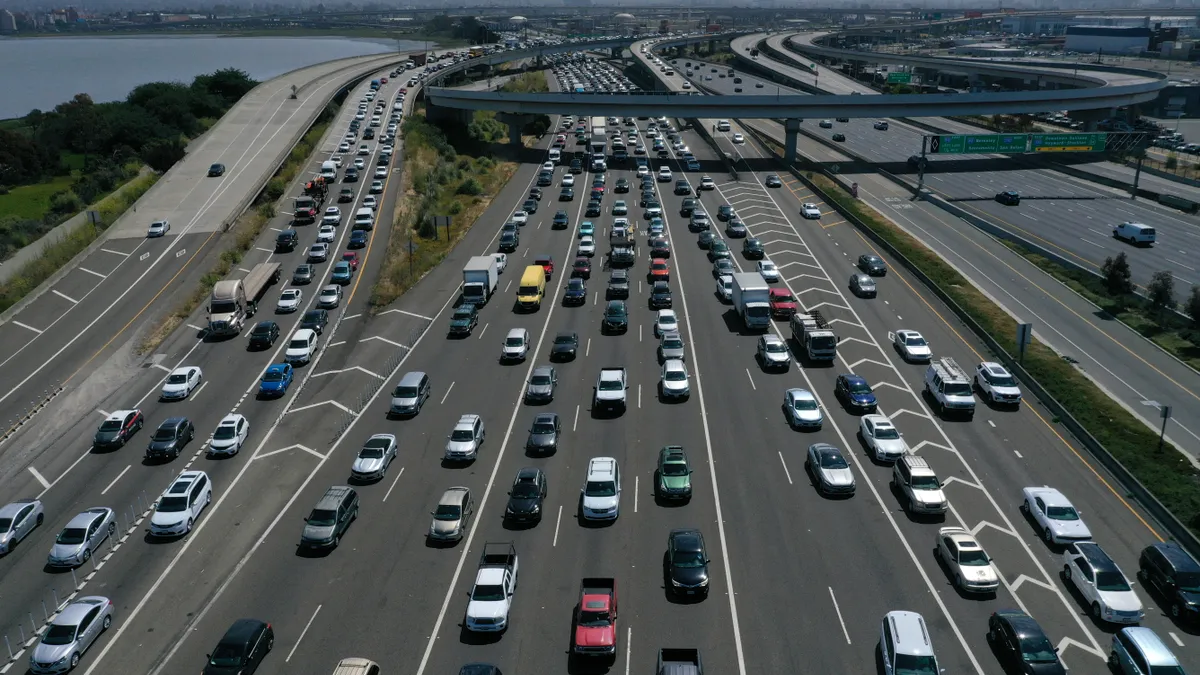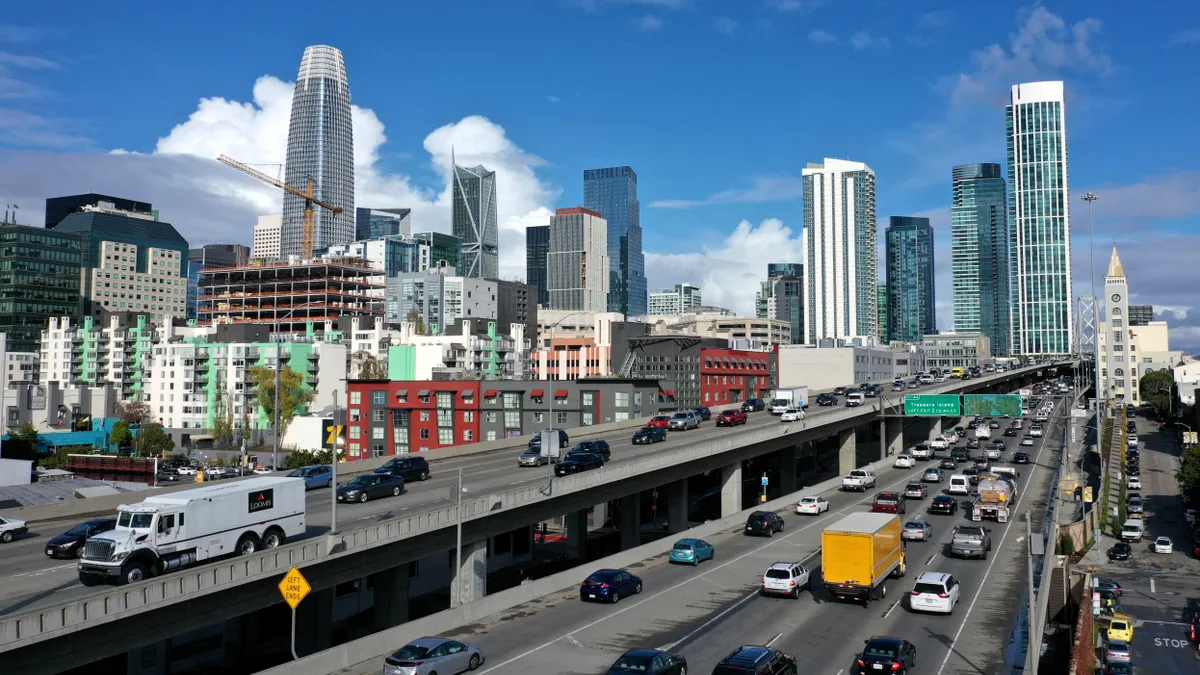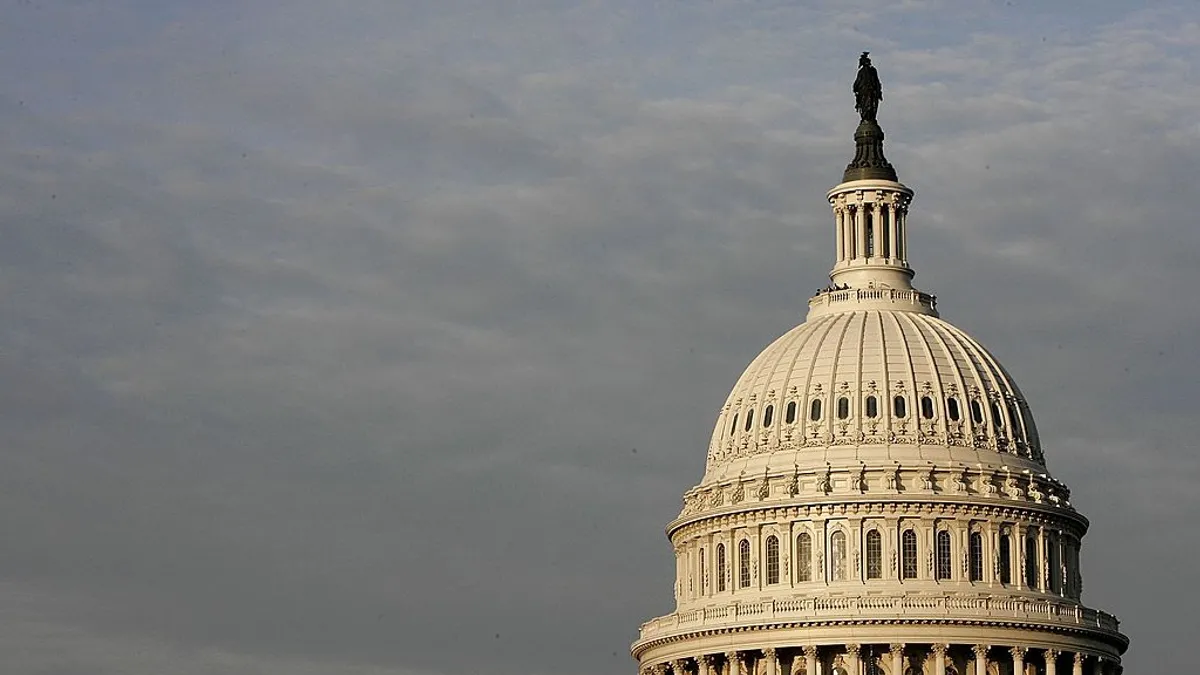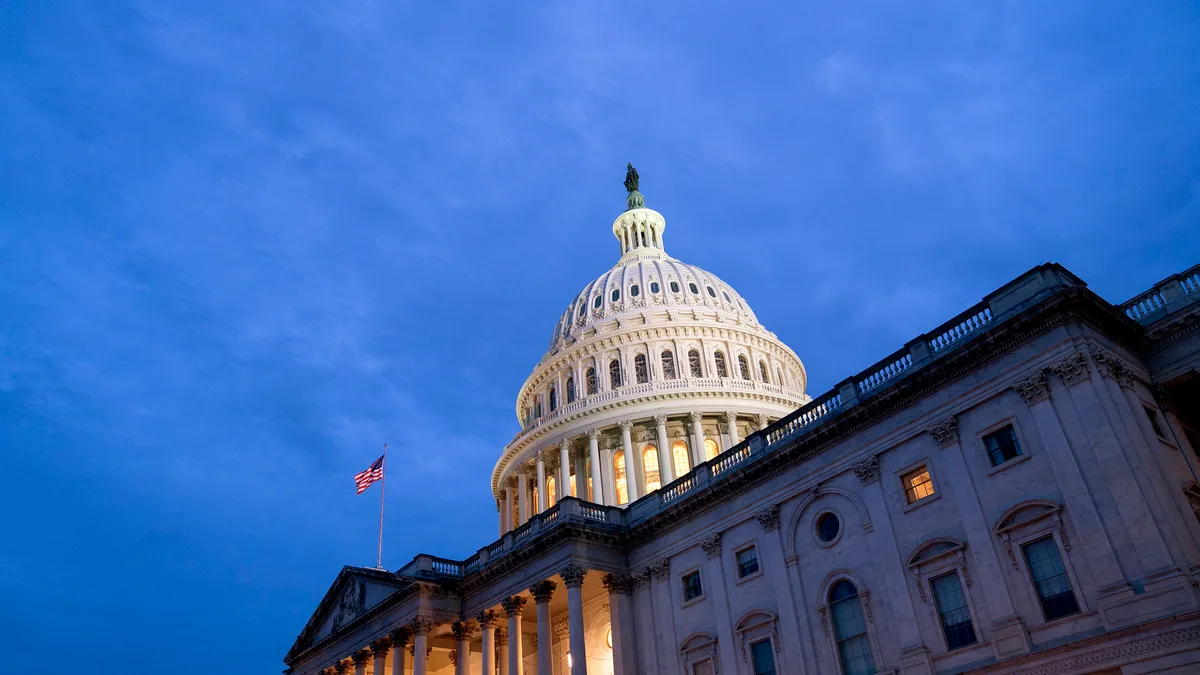Dive Brief:
- The $1 trillion bipartisan infrastructure bill that passed the U.S. Senate on Tuesday could offer cities new opportunities for technology and mobility funding, including a grant program for smart cities technology.
- The bill — which has $550 billion in new investments — creates a $500 million grant program over five years for projects involving connected vehicles, autonomous transportation and "smart" traffic sensors, among other technology. The bill also dedicates $65 billion in new broadband connectivity spending.
- Although the bill is one of the largest investments in transportation and energy infrastructure, some groups have criticized it for not dedicating more money to sustainable mass transit and alternative transportation. The National Association of City Transportation Officials criticized the bill’s highway spending, saying it “keeps our nation on an unsafe and unsustainable path.”
Dive Insight:
The bill, which passed in a 69-30 vote, represented a scaled-down version of the earlier ambitions of the Biden administration. The White House had originally detailed a sweeping $2.7 billion infrastructure plan with $85 billion to public transit, $80 billion to rail, $100 billion for broadband, as well as other investments in climate resiliency and smart grid technology.
The final bill, however, reduced new transit investments to $39 billion and Amtrak’s share to $66 billion, with funding for highways, roads, bridges and surface transportation at $110 billion. That left some progressives cool on the final compromise, although a $3.5 billion reconciliation package passed by the Senate on Wednesday could offer an opportunity for more investment in climate and smart mobility funding.
However, the infrastructure bill does offer significant opportunities to advance smart city principles and technology, said Nick Maynard, co-founder and CEO of US Ignite, a nonprofit that supports smart city development. Even without earmarks for certain transportation modes or technology, the funding should help cities and states reach sustainability goals.
"There’s a whole range of programs in here that could be opportunities for smart cities," Maynard said. "What we hope to see is not just money opening up, but a coordinated effort that flows through the states so that they have resources to coordinate across county and regional efforts to reflect a common, shared vision that is implemented week after week and month after month."
Notably, the bill creates the Strengthening Mobility and Revolutionizing Transportation (SMART) grant program, which would offer funds to governments for demonstration projects for new technology. The technology could touch a number of topics, ranging from transportation to energy efficiency to connectivity, and grants would be distributed to a range of partners based on geography, size and effectiveness; the bill does prohibit funds to be used on traffic enforcement or license plate readers.
The grant program mirrors one proposed by House Democrats earlier this year, although that bill would have offered $1.1 billion in total funding. The original bill also would have incorporated technical and funding assistance from across the government, while the infrastructure bill is focused on the Department of Transportation. An aide for Rep. Suzan DelBene, D-Wash, who sponsored the original bill, said "we are glad to see some smart cities related provisions in BIF [the Bipartisan Infrastructure Framework], but far more is needed," adding that the office was working to include more provisions in the budget reconciliation package.
The bill also includes significant new funding for broadband connectivity, with a $42.5 billion grant program to install broadband in areas lacking coverage, which advocates say can support the introduction of connected infrastructure and smart sensors in smaller rural communities. The bill also devotes $7.5 billion to electric vehicle (EV) charging stations, a step down from the Biden administration’s original $174 billion proposal for EV infrastructure and consumer subsidies.
In a statement, Electrification Coalition Executive Director Ben Prochazka said the bill "provides a much-needed down payment to electrify our transportation future," and that the group will work to "develop a much stronger funding package for transportation electrification through the reconciliation process." Twenty-eight House Democrats sent a letter to leadership calling for an additional $85 billion in the budget reconciliation package for EV charging infrastructure.
The budget reconciliation passage passed Wednesday in a party-line vote offers instructions for committees to draft specific budget bills. An outline of the resolution released by Senate Democrat leadership details some of the resolution’s climate and mobility goals. The Environment and Public Works Committee is given $67 billion for initiatives including "investments in clean vehicles," energy efficient buildings and a Clean Energy Technology Accelerator to fund low-income solar and climate-friendly technology. The Banking, Housing and Urban Affairs Committee has $332 billion for affordable housing and community investment initiatives, including "investments in [Community Development Block Grants], zoning, land use and transit improvements creating healthy and sustainable housing." The Commerce, Science and Technology Committee will also spend on technology and transportation initiatives.
Specific details will come out as each committee drafts its budget language. House members will also weigh in, with progressive members saying they will emphasize climate provisions in the bill. That process, said Maynard, could result in a final product that advances even more progressive and smart city goals.
"I feel like it’s been infrastructure week for so long, it’s exciting to see it finally come together," he said. "Regardless of funding, we’ll support communities as they deploy programs so they deliver real benefits to residents."


